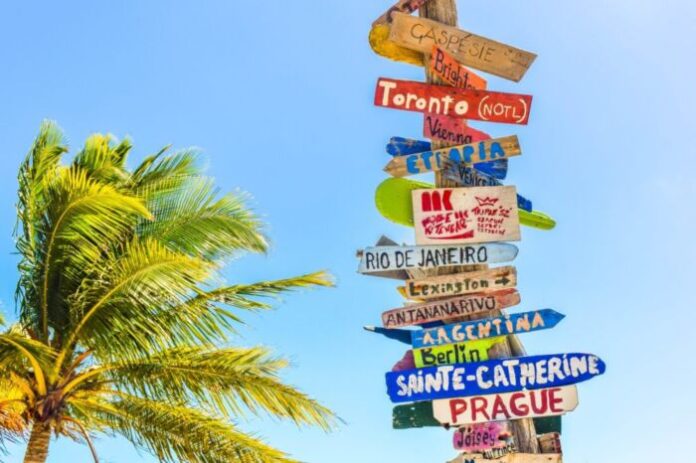
Travel makes us better. It broadens our perspective, it pushes our boundaries and it allows us to experience the world through a different lens. With great power, also comes great responsibility, which is why as a well known contributor to climate change, it is critical that the tourism industry becomes more sustainable as a whole.
There is much work to be done on educating consumers what sustainable tourism actually is and how to do it, however. To me, sustainable tourism symbolizes traveling well. How can you do the most good, the least harm and have a memorable, transformative experience? To travel well, you have to support local communities, protect culture and heritage, and do it all with as light of an environmental footprint as possible.
1. If possible, try not to fly – Out of all the modes of transport, flying produces the most carbon dioxide emissions per kilometre. If possible, take the train or go on a road trip. Even one short flight produces more CO2 than driving or rail travel. Also, avoid stopovers if you can, because those mean longer journeys and more fuel and CO2 emissions. A direct flight not only saves you time, it will also be less taxing on the environment.
2. Walk or use public transport – Compared to driving or taking a cab, mass transit is a much greener way to travel, because it uses less fuel per passenger. Even better, explore by foot. It’s a great way to experience any place and make new discoveries off the beaten track, and you get to clock those 10,000 daily steps. Wherever you plan to go, do your research on the most efficient way to get around to cut down on travelling time and fuel emission. Depending on where you are, public transportation can be a better alternative to renting a car or taking a cab. Doing due diligence will ensure that you pick the most convenient and sustainable mode of getting around.
3. Stay in eco-conscious resorts or hotels – The tourism industry can jeopardise local wildlife and culture, and destroy the land. However, more and more accommodations are becoming aware of the need to preserve the environment and the local communities. Look for accommodations with eco-certification. Such certifications indicate whether an establishment is eco-friendly, in that it gives back to the community or acts on sustainable best practices such as preserving wildlife and local cultural heritage or employing local staff. They are typically given by sustainable tourism organisations or non-profit ones that support sustainability in tourism around the world.
4. Travel with fair-trade travel agencies – Aside from eco-friendly accommodations, choosing fair-trade travel agencies also helps to ensure that your travels are environmentally friendly. Design your trip using an eco-friendly, socially aware travel agency. It helps you tailor sustainable travel experiences by regularly carrying out assessments and on-site inspections before classifying hotels as Eco-Friendly or Socially Aware, supporting local charities and fair-trade shops, and actively supporting community-based tourism projects
5. Pack your own reusables – Instead of using the mini shampoos and body lotions in your hotel(s), pack your own shower products to reduce wastage. Fill them in reusable bottles so you can use them for the next trip too. Also, bring along a foldable cloth shopping bag for your purchases, utensils and a your own bottle. With these on hand, you will never have to ask for single-use disposable items such as plastic bags and styrofoam or cardboard containers.
6. Skip the animal rides – Animal rides may seem like harmless fun, but it’s common knowledge by now that the animals used as tourist attractions suffer seriously poor living conditions. They are chained, kept in cages, and frequently abused, starved and overworked — and many have died under the adverse conditions. Skipping the animal rides or other tourist-y activities with animals will show that such inhumane practices have no place in the tourism industry and create a change in protecting local wildlife.
7. Shop for souvenirs wisely – It’s tempting to reach for a bunch of paper fans or keychains as souvenirs when you’re on holiday. But more often than not, those gimmicky items are thrown away eventually and create waste. Put some effort into buying your souvenirs and look for something that is locally-made and not imported. Find something that is long-lasting, such as ceramics, textiles, or consumables such as local spices or spirits — these will make for more sincere gifts and memorable keepsakes.



































